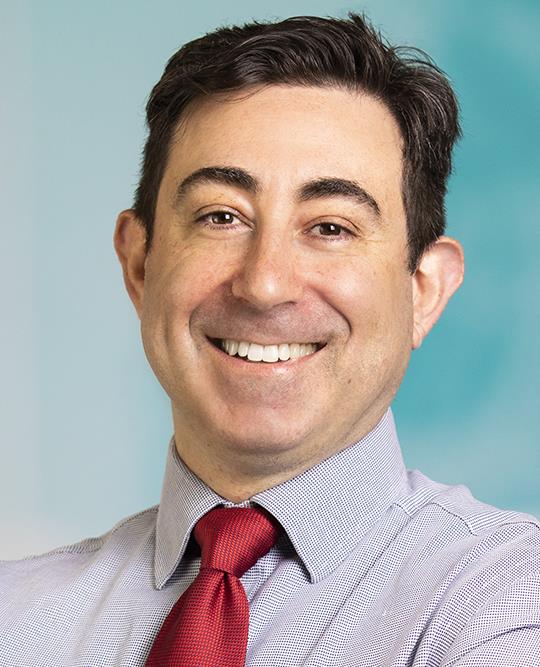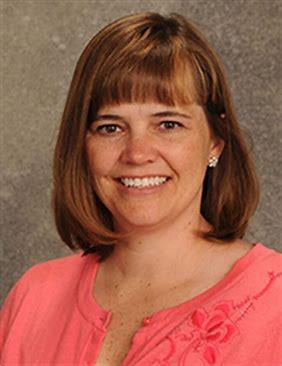- Doctors & Departments
-
Conditions & Advice
- Overview
- Conditions and Symptoms
- Symptom Checker
- Parent Resources
- The Connection Journey
- Calm A Crying Baby
- Sports Articles
- Dosage Tables
- Baby Guide
-
Your Visit
- Overview
- Prepare for Your Visit
- Your Overnight Stay
- Send a Cheer Card
- Family and Patient Resources
- Patient Cost Estimate
- Insurance and Financial Resources
- Online Bill Pay
- Medical Records
- Policies and Procedures
- We Ask Because We Care
Click to find the locations nearest youFind locations by region
See all locations -
Community
- Overview
- Addressing the Youth Mental Health Crisis
- Calendar of Events
- Child Health Advocacy
- Community Health
- Community Partners
- Corporate Relations
- Global Health
- Patient Advocacy
- Patient Stories
- Pediatric Affiliations
- Support Children’s Colorado
- Specialty Outreach Clinics
Your Support Matters
Upcoming Events
Colorado Hospitals Substance Exposed Newborn Quality Improvement Collaborative CHoSEN Conference (Hybrid)
Monday, April 29, 2024The CHoSEN Collaborative is an effort to increase consistency in...
-
Research & Innovation
- Overview
- Pediatric Clinical Trials
- Q: Pediatric Health Advances
- Discoveries and Milestones
- Training and Internships
- Academic Affiliation
- Investigator Resources
- Funding Opportunities
- Center For Innovation
- Support Our Research
- Research Areas

It starts with a Q:
For the latest cutting-edge research, innovative collaborations and remarkable discoveries in child health, read stories from across all our areas of study in Q: Advances and Answers in Pediatric Health.


Allergy and Immunology
Congenital Immune Deficiencies
We specialize in the big things, the small things and everything in between.

What are immune deficiencies?
These are a group of genetic diseases in which a child is born without a normal ability to fight infection. This condition is called an immune deficiency or severe combined immune deficiencies (SCID).
When present, SCID and other congenital severe immune deficiencies, like Wiskott Aldrich Syndrome, are life-threatening diseases because the child cannot effectively fight off common infections.
Children with severe immune deficiencies often need to be hospitalized and can die from common respiratory viruses like flu, RSV or adenovirus, other common viruses like chickenpox or opportunistic infections that only affect the severely immune-compromised (people with weak immune systems) like certain types of pneumonia.
What is severe combined immune deficiency (SCID)?
Because the human immune system is so complex, there are many possible genetic mutations that can result in severe congenital immune deficiency. The most severe is severe combined immune deficiency (SCID), where both the disease-fighting immune system T-cells and B-cells are absent or broken. Once discovered, a child with SCID is usually should be kept in protective isolation to prevent catching a possibly fatal viral infection.
At this time the only known effective and curative therapy is hematopoietic stem cell transplantation (HSCT) from a healthy donor.
It is important to know that severe congenital immune deficiencies are very different from acquired immune deficiencies such as HIV and AIDS, which cannot be cured by a standard allogeneic HSCT.
Finally, there is a family of diseases called the Histiocytic Disorders, which are life-threatening diseases that are due to an inherited immune defect.
What causes severe congenital immune deficiencies?
The word "congenital" means that children are born with a condition. All severe congenital immune deficiencies are caused by genetic mutations. The abnormal changes in the genetic code that result in severe congenital immune deficiencies are usually recessive or "weaker" genes. There are two main patterns of SCID inheritance autosomal X-linked recessive:
- Autosomal Recessive: Each parent could carry a rare SCID gene, which is "hidden" because their normal gene provides the instruction code for normal. The chance of a parent donating the defective gene to their child is 50% for each egg or sperm. If a child inherits only one defective gene from parents, they are normal, but are a carrier and could pass the SCID to their children if the other parent also carried a SCID defect in the same gene. If the child inherits neither of the defective genes, they are normal and cannot pass the SCID to their children.
- X-Linked Recessive: Only the mother carries a "hidden" SCID gene on her X chromosome and she is normal because of a normal gene on her other X chromosome (females have two X chromosomes, and males have one X and one Y chromosome). If she is the mother of a boy (XY) and he receives the X chromosome with the defective gene, he will have a SCID. If the boy receives the normal X from mom, he will not have SCID. If a mother donates her abnormal X with the SCID gene to a daughter, that daughter will be a carrier and could pass SCID on to her boys (50% chance). If the girl gets mom's normal X, she will be normal and cannot pass the SCID to her children.
Who gets SCID, SCID variants or histiocytic disorders?
Fortunately, all combined severe congenital immune deficiencies are very rare diseases. Each form of SCID is therefore very rare.
In autosomal recessive SCID, both parents have a rare mutated gene, but this is usually not predictable based on family history. Sharing the same parents or grandparents is a known risk factor and, if culturally common, there may be a SCID history.
In X-linked recessive SCID, there is often a family history of increased early fetal loss or death in the first year of life in male children. However, if the defective gene is new in mom or there are not many other relatives, there may not be any history.
Currently, the genetic mutations causing SCIDs can be identified in about 75% of children with severe congenital immune deficiency. This is important because some children with SCIDs may have other medical conditions or increased susceptibility to cancer or problems with chemotherapy or radiation. Also there may be other medical issues to counsel them about that may not be corrected by stem cell transplants. Finally, knowing the exact genetic defect allows for appropriate genetic counseling and the possibility of diagnosis before birth.
What are the signs and symptoms of severe congenital immune deficiencies?
Severe congenital immune deficiencies (SCID) may not be apparent in the initial months of life when maternal antibodies are still working to fight infections for the baby.
Between 3 to 6 months when maternal antibodies disappear, this is also the time babies start to get taken out of the house by parents, which exposes them to infections. Between 3 and 6 months is often when SCID complications start.
Classic symptoms of SCID include recurrent infections, severe or prolonged infections with common viruses, infections that only occur in people with immune deficiency or opportunistic infections.
Other frequent conditions are chronic diarrhea (often, but not always due to infection), failure to grow and develop normally (also called failure to thrive), and recurrence of persistent thrush, a fungal infection in the mouth.
What tests are used to diagnose severe congenital immune deficiencies (SCID) and SCID variants?
- A complete blood count that could show very low to absent lymphocytes (classic SCID) or low platelets.
- A T and B cell count in the blood (they are low to absent in classic SCID).
- Quantitative immunoglobulin levels (IgG, IgA, IgM, IgE) are low to absent in classic SCID.
- Proliferation to mitogens that tests for normal T cells, usually low or absent in SCID.
- A physical exam which, in addition to assessing for infection and failure to thrive, could also identify physical findings that could help the diagnosis.
Specific tests could be done to look for a specific protein on the T and B cells and its function). Most specific tests are genetic analyses to look for the defective SCID genes. This is often guided by the results of the above general tests. Results from genetic screening tests can take weeks or months.
Newborn screening for SCID
This is a special test that has recently been offered in some states (including Colorado) as part of standard newborn testing for inherited diseases. This test looks for the presence of new T cells. If none are detected, the child should be referred to a pediatric immunologist, who will perform the above general tests and confirm if the child has SCID. Once the diagnosis of SCID is made, your child may be admitted to the hospital to be protected from disease.
How do providers at Children's Hospital Colorado make a diagnosis?
The diagnosis of SCID is made by identifying the genetic defect that is characteristic of that disease. We can now identify almost 80% of SCID patients' genetic defects, and there are some children who will have a newly discovered gene defect that causes SCID.
Currently, genetic testing is relatively slow and quite expensive, so it is important to get pre-approval from insurance. There are ongoing improvements in the testing and the computer programs that analyze the huge amount of information generated during genetic testing. The hope is that in the future, complete genetic testing for a class of diseases (i.e., SCID) will be available, practical, timely and affordable.
How are severe congenital immune deficiencies treated?
The only treatment available to cure severe congenital immune deficiencies is a stem cell transplant, also called a bone marrow transplant.
Doctors also treat children with SCIDs by treating any secondary illness that is caused by having low immunity. These can be infections like flu or cold and fungal infections like thrush. Children with SCIDs can also be given drugs to increase their immune system, such as immunoglobulin therapy.
Why choose Children's Colorado for your child's immune deficiencies?
Children's Colorado is one of the leading pediatric medical centers in the country, with outstanding subspecialists in every aspect of pediatric medicine. At our Center for Cancer and Blood Disorders, we have expert blood doctors who have designed therapy regimens that are non-toxic and successful at increasing blood counts in our patients.
Children with severe congenital immune deficiencies or histiocytic disorders are cared for primarily by immunologists, hematology and oncology physicians, and bone marrow transplant physicians. These patients can have many complications and may require intensive interventions to deal with any complications.
In the Western states, Children's Colorado is uniquely qualified to provide comprehensive medical services to those children born with these rare and life-threatening disorders. Our pediatric specialists manage all aspects of patient care, from diagnosis (including immunologic and genetic testing), treatment of infectious complications, treatment of autoimmune complications and, if required, curative bone marrow transplants and all follow-up care.
If your child is a good candidate for a bone marrow transplant, read about our world-class Bone Marrow Transplant Program.
Helpful resources for immune deficiencies
Next steps
-
Would you like to learn more about us?
Learn more about the Allergy and Immunology Center -
Do you have questions about your child’s condition?
720-777-2575 -
Are you ready to schedule an appointment?
Schedule an appointment

Compassionate care, wherever you are
We’re here when you need us. Telehealth appointments are available across every specialty, so you can get the high-quality care we’ve always offered from the comfort, privacy and convenience of home.
See if telehealth is right for you



 720-777-0123
720-777-0123







